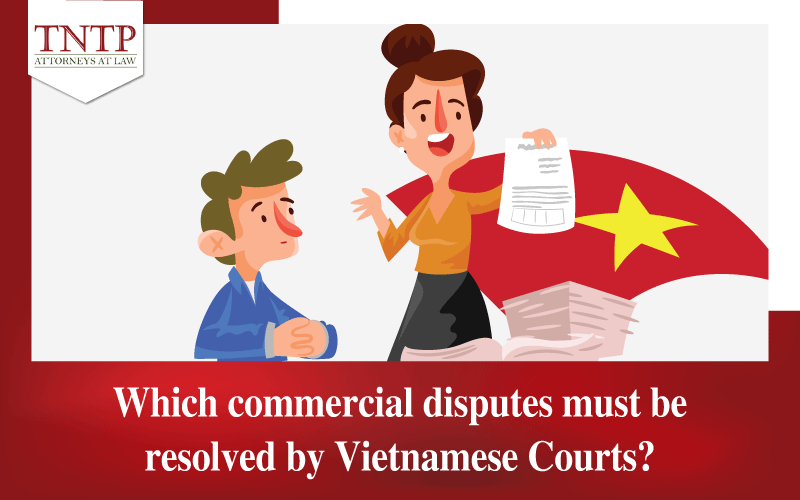Applicable law to resolve international sale of goods contracts disputes at Arbitration in Vietnam
For international sale of goods contract disputes where the parties choose arbitration as a method of dispute resolution, the applicable law, in some cases, can become a complicated issue, from choosing procedural law to substantive law to resolve the dispute. In this article, TNTP will point out some cases of choosing the law to resolve disputes over the sale of goods contracts at arbitration in Vietnam.
1. Applicable procedural law
When choosing arbitration, choosing the applicable law in arbitration proceedings, such as the order and procedures of arbitration proceedings, the statute of limitations for filing a lawsuit, establishing an arbitral tribunal (including appointing arbitrators, standards and conditions for arbitrators), arbitration hearings (including a number of procedures such as taking statements, collecting evidence, applying temporary emergency measures), awarding procedures, and recognizing and enforcing arbitration awards… will be determined on the principles of agreement between the parties and the law of the country where the arbitration is established or where the arbitration is held.
Arbitration respects the agreement of the parties in determining the applicable law for dispute resolution proceedings. However, in cases where the parties do not have an agreement on the applicable law, depending on the type of arbitration to resolve the dispute, the choice of applicable law is stipulated as follows:
• Where the parties choose ad hoc arbitration: The law applicable to resolve disputes in arbitration proceedings is the law chosen by the parties. If not, the arbitral tribunal will choose the law applicable to the proceedings or apply the law of the country where the arbitration is established or where the arbitration is held. If the parties choose to establish arbitration in Vietnam or where the arbitration is held in Vietnam, Vietnamese law will be applied.
• Where the parties choose arbitration centers: Normally, arbitration centers will have their own procedural rules applied to resolve disputes at that arbitration center. However, the parties will be allowed to apply other procedural rules if the procedural rules of the arbitration center chosen by the parties allow them. The procedural rules of the arbitration center must comply with the provisions of the Law on Commercial Arbitration in the country where the arbitration center is located.
2. Applicable substantive law
Article 14 of the Law on Commercial Arbitration 2010 provides principles for choosing the substantive law for resolving international sale of goods contracts disputes, specifically as follows:
• If the parties choose the applicable law, the Arbitral Tribunal shall apply the law chosen by the parties. For international sale of goods contracts disputes, Vietnamese law allows the parties to agree on the choice of substantive law applicable to the dispute and the Arbitral Tribunal will follow that choice. The law chosen by the parties may be foreign law, international treaties, international commercial practices, etc.
However, Clause 3, Article 14 of the Law on Commercial Arbitration 2010 will “redirect” the applicable law to international practices if the law chosen by the parties does not have specific provisions related to the content of the dispute, with the condition that the application or the consequences of such application are not contrary to the basic principles of Vietnamese law.
Meanwhile, Article 670 of the 2015 Civil Code stipulates that the referred foreign law shall not be applied in the following cases: (i) The consequences of applying foreign law are contrary to the basic principles of Vietnamese law; (ii) The foreign law cannot be determined despite applying all necessary measures as prescribed by procedural law. In such cases, Vietnamese law shall be applied to the dispute.
• In case the parties do not have an agreement on the choice of applicable law, the Arbitral Tribunal will apply the law that the Arbitral Tribunal considers appropriate to resolve the dispute. The Arbitral Tribunal will evaluate and choose the law that it assumes to be the most suitable for application to the dispute. The rationale in choosing the law is subjective to the arbitrator, and may not be based on any specific criteria or principles.
In arbitration proceedings, the principle of respecting the agreement of the parties in a dispute is always complied with at every stage, from the choice of law applicable in the proceedings to the choice of law to resolve the content of the dispute. However, in case the parties do not reach an agreement, the arbitrator will apply the appropriate law to resolve the dispute.
Above is the article “Applicable Law to Resolve International Sale of Goods Contracts Disputes at Arbitration in Vietnam”. Hopefully, the above sharing will be helpful to readers.
Sincerely,



